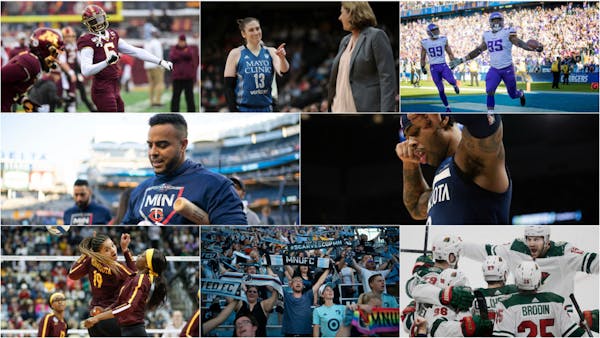Back in a completely different era of professional sports, training camps were a time for players to get in shape after the offseason. The notion of an "organized team activity" — a particularly jargony word for an offseason practice pioneered by the NFL — was laughable.
Pro athletes 50 or 60 years ago commonly held second jobs to supplement their income. As a Cleveland Plain Dealer story about the era notes, pertaining to the NFL: "It was also a time when the NFL schedule was more conducive to squeezing in a second job. Teams played no more than 14 regular-season games. Once the season ended, coaches didn't expect to see the players for another seven months. Players would clean out their lockers and not return until summer training camp."
Even in 1970, the minimum salary for an NFL veteran was a mere $10,000.
Obviously the financial stakes are much higher now. Pro sports teams have mushroomed into billion dollar valuations, making owners obscene profits and setting up a lot of players for life.
If anyone works a side job now, it's more of a novelty than necessity. NFL players spend offseasons staying in shape. Teams with returning head coaches can start their offseason training programs in mid-April, just a couple months after the Super Bowl and more than three months before training camps begin.
Between mid-April and mid-July, there is a smattering of OTAs, minicamps, rookie minicamps, weight training and injury rehab. Much of it requires players, coaches and support staff to be in attendance at team facilities.
This year, of course, has necessitated all sorts of changes on the fly. Virtually everything is being done, well, virtually in the wake of the coronavirus pandemic.
None of it qualifies as ideal. At the most, in this moment, teams are making the best of a bad situation.
But maybe some of what's happening right now should be adopted next offseason and beyond — in whatever qualifies as normal times?
Vikings coach Mike Zimmer did a video call from his ranch in Kentucky on Wednesday. In a regular year, he would certainly spend some offseason time there. But he would also be grinding away and working long hours at the Vikings facility for big chunks or April, May and June.
This year? Zimmer is hanging with his family, including son Adam — also a Vikings defensive staffer.
"Today, I woke up, I got a skid steer [loader], I went in the back, and did some work way back there," Zimmer said. "Then I came back, we had a defensive staff meeting, offensive meetings with the players, and then I took a break, that was this afternoon after the defensive meetings. … I got on the tractor and got the fields ready to plant and then I came up here for a defensive staff meeting. And then in the evenings we just kind of hang out, build a fire, get takeout. Adam loves smoking stuff on the smoker. He'll go jump in the hot tub, and I'll watch some 'Chicago P.D.' or something."
That sounds like a pretty good work-life balance — one that some of us, during our best stay-at-home days, might be able to relate to. Part of what's happening right now is completely stressful, but imagine that kind of workday and balance, at least some of the time, during a less stressful time.
Colts GM Chris Ballard seems to be realizing the benefits of that very thing, even if he was thrust into it by our current situation.
"It's been interesting just with my family being home these last three-and-a-half weeks," Ballard said around the time of last months NFL draft. "I almost forget – we have dinner tonight. We have dinner every night together. Our lives have been taken over by youth sports – they really had for the good. All of our kids are active. They have been in youth sports and so it was hard to get us all together at any point just to spend time together as a family, to eat dinner – little things you kind of take for granted that we're doing now every night. … To watch my kids – it's almost like when I grew up – to watch them have to go out and play in the yard and play baseball in the yard and find time with each other. That's been rewarding. I'm not gonna lie, that's been very rewarding."
Players are doing virtual workouts and studying. Whatever is being lost in technique and nuance might be gained in the decompression of mind and body from the grind of a long year.
I'm not suggesting that players leave in January and come back in July like the old days, but maybe there's less of a need for everyone — even the ultra-serious NFL — to rush around and fill up schedules.
Maybe at least a lot of what happens this time of year in the NFL can and should be done virtually?
Think of it as necessity being the mother of re-invention.


